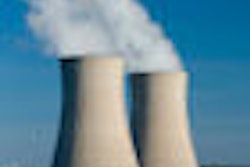
OTTAWA (Reuters), Jun 16 - One of the reasons Canada abandoned a project last year to build new reactors to produce medical isotopes was the risk they could not be shut down if something went wrong, Natural Resources Minister Lisa Raitt said on Friday.
Raitt's comments come after the existing Chalk River reactor was shut down in May for at least three months because it was leaking a small amount of heavy water. That prompted a scramble in Canada and around the world to find alternative sources for the short shelf-life isotopes.
The government agency Atomic Energy of Canada (AECL) and health sciences company MDS had poured large sums of money over 12 years into what was called the Maple project to build reactors to make the isotopes, used for medical imaging.
The government backed an AECL conclusion last year that the project should be killed. But MDS, which markets the isotopes worldwide, and the political opposition have been pressing Ottawa to resurrect the Maple projects in light of the temporary shutdown of Canada's aging isotope reactor in Chalk River, Ontario.
"The problem was a serious one," said Raitt, speaking in an interview with Toronto radio station CFRB, about the Maple project.
"It was one where if the reactor were to run it wouldn't be safe, because there's a possibility it wouldn't be able to be shut down," she said.
There had been the hope that that problem could be fixed, but she said the timeline for solving it was put at sometime between 2013 and 2018. "That's not a short fix," she said.
The Chalk River reactor that was shut down in May was commissioned more than 50 years ago and normally produces about one-third of the world's medical isotopes.
Prime Minister Stephen Harper said this week that he expected Canada would eventually get out of the business of making the isotopes.
Last Updated: 2009-06-15 16:09:45 -0400 (Reuters Health)
Related Reading
MDS urges Canada to restart Maple reactor project, June 12, 2009
Copyright © 2009 Reuters Limited. All rights reserved. Republication or redistribution of Reuters content, including by framing or similar means, is expressly prohibited without the prior written consent of Reuters. Reuters shall not be liable for any errors or delays in the content, or for any actions taken in reliance thereon. Reuters and the Reuters sphere logo are registered trademarks and trademarks of the Reuters group of companies around the world.

















